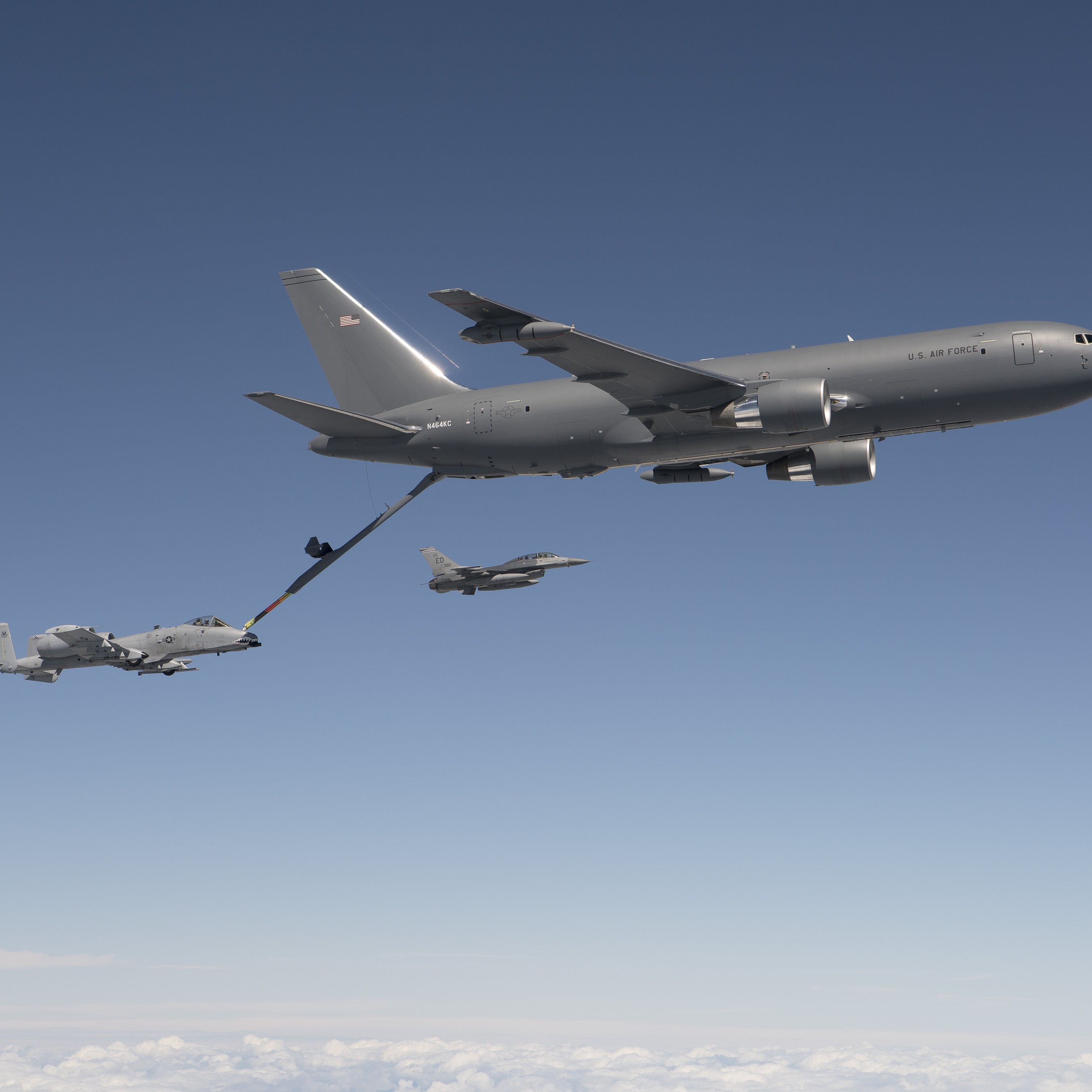Military
Boeing KC-46A Tanker Deliveries May Be Delayed Until May 2019

Published:
Last Updated:

When Boeing Co. (NYSE: BA) won the U.S. Air Force contract to replace aging KC-135 refueling tankers, the original delivery date for the first plane was in the second quarter of 2016. Following a number of delays, the first new tanker will be delivered late this year, according to the Air Force, and the first 18 likely will be delayed further from October 2018 until May 2019.
According to a Boeing announcement Thursday, the 767-2C aircraft on which the new tanker is based has completed the necessary flight tests to receive a supplemental type certificate (STC). The tests encompass the military systems installed on the 767-2C and the results will be submitted to the Federal Aviation Administration (FAA) for review. Last December the 767-2C received its FAA amended type certificate.
Air Force Under Secretary Matt Donovan told Bloomberg News after a March visit to Boeing’s Seattle plant, “I found that they were very pressurized to get this the last ten yards.” Donovan’s visit was designed to light a fire under Boeing to get the new tanker into the air.
One of the last two primary flaws with the KC-46A has been corrected with a software fix that presumably will be only temporary until Boeing develops, certifies and deploys an automated monitoring system. Here’s how FlightGlobal described the problem and the solution last week:
The software flaw affects the aircraft only when the KC-46A is on-loading fuel in-flight into the centre fuel tank.
In Boeing’s view, the problem is highly unlikely to cause a safety hazard. As fuel is onloaded into the tank, three separate functions embedded in a fuel flow controller must fail at the same time and continuously. If they do, however, an overpressure could develop in the centre fuel tank with catastrophic results, Boeing says.
… The certification problem for the 767-2C is based on a small detail. All three software functions that could fail operate on a single processor, according to Boeing.
The FAA’s certification rules mandate that such an aircraft use an automatic and independent system for monitoring fuel onloading to prevent an overpressure condition, Boeing’s document says.
Boeing now plans to develop, certificate and deploy such an automated monitoring system within a year. Until then, Boeing will require that the USAF assign a third crew member to monitor the fuel gauges when the aircraft is onloading fuel …
The other issue is that the KC-46A’s refueling boom sometimes scrapes other parts of the airplane being refueled. This could be an issue for stealthy aircraft if the boom removes some of the coating on the planes that gives them their stealth capabilities.
Boeing’s contract with the Air Force calls for a total of 179 new tankers.
Boeing stock traded down about 2.7% in the noon hour Friday, at $340.06 in a 52-week range of $175.47 to 371.60. The stock’s 12-month price target is $387.29.
Start by taking a quick retirement quiz from SmartAsset that will match you with up to 3 financial advisors that serve your area and beyond in 5 minutes, or less.
Each advisor has been vetted by SmartAsset and is held to a fiduciary standard to act in your best interests.
Here’s how it works:
1. Answer SmartAsset advisor match quiz
2. Review your pre-screened matches at your leisure. Check out the advisors’ profiles.
3. Speak with advisors at no cost to you. Have an introductory call on the phone or introduction in person and choose whom to work with in the future
Get started right here.
Thank you for reading! Have some feedback for us?
Contact the 24/7 Wall St. editorial team.